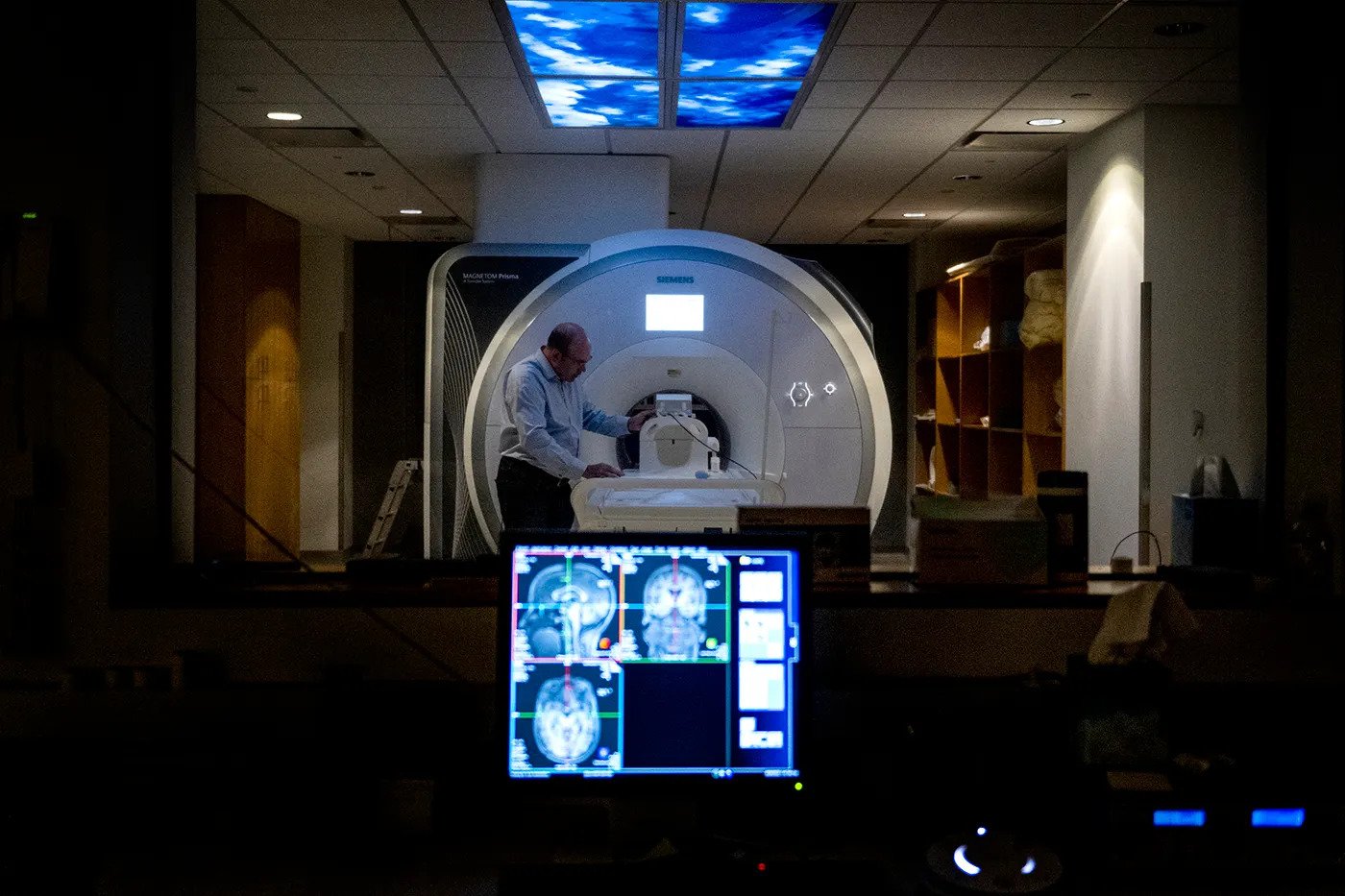As one of Northeastern’s newest faculty members, cognitive neuroscientist Jonathan Peelle is still setting up his lab. But he is already unpacking advice.
Protect your hearing, Peelle says. Once damaged, its function cannot be fully restored, and that has important implications for speech comprehension.
“You don’t have to have profound hearing loss to have cognitive challenges,” says Peelle, whose research on the neuroscience of communication, aging and hearing is funded by the National Institutes of Health.
Even mild hearing loss causes the brain to work harder to understand speech, especially when background noise is involved, he says.
He uses functional brain imaging to measure tiny changes in blood flow to the brain of subjects with mild hearing loss and individuals with cochlear implants.
Peelle, an associate professor at Northeastern’s Center for Cognitive and Brain Health, also employs a lab technique called pupillometry, which measures minute fluctuations in pupil diameter.
Pupil diameter gets bigger when people listen to challenging speech, Peelle says. Add background noise, and “your brain might have to work harder.”
“If I can help your hearing, I’m going to help your cognition,” at least in the short term, Peelle says.
Large population studies, such as a 2020 report published in the medical journal Lancet, show that dementia is more likely in those with hearing loss.
Read more on New@Northeastern.

